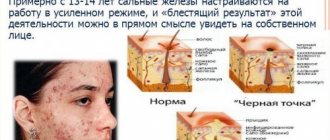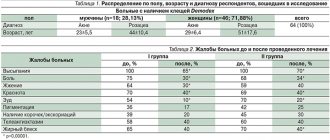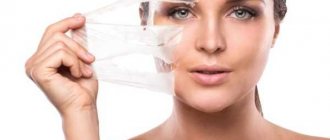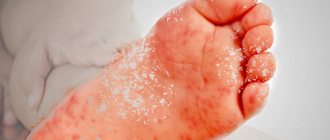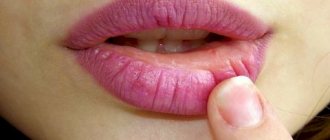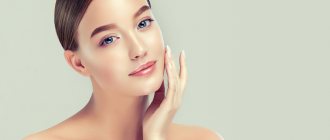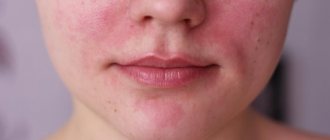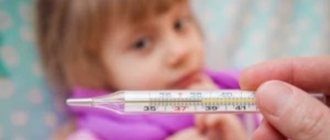“... the dashing comrade of our grandfathers,
He is a friend of Venus and the feasts,
He is the god of dinners at dinners,
in his gardens - He is the god of gardens"
The young Pushkin’s admiring description of an elderly man, distinguished from his peers by his tireless energy and toned torso, is rather the exception in everyday life than the rule. We are all different, but most people want to be healthy, happy and active, to live a quality life at any age.
Introduction
Good news, the World Health Organization considers the age group 45-59 to be “average”, but right behind it is “older” 60-74. That is why many doctors believe that up to 45 (a young age), in most cases, to maintain health, you can do without any serious therapy, including hormonal therapy. However, after 45 years, the functions of organs and systems may decline, which requires monitoring and, if necessary, treatment.
Hormones are substances produced by internal glands that regulate all metabolic processes in the human body. The change in their activity with age is considered by many scientists as a central link in the aging process (the theory of V.N. Dilman, 1983). The word "hormone", from the Greek "hormao", means "to quickly bring into action", "to raise" or "to excite". It was invented by the British physiologist Ernst Starling in 1905.
In her book The Brain of the Sexes, Anna Moire writes: “What really sets men and women apart, testosterone, literally shapes our brains and our creativity, intelligence, way of thinking, energy, desire to understand different things. It influences and controls not only the potential we possess, but also the benefit we derive from it. It controls our sexual and communicative behavior."
The steroid hormone testosterone in men is produced in the testicles. It is he who makes men out of men. It has a biological effect on almost all organs and tissues.
At 10-12 years of age (puberty), increased production of testosterone begins, which leads to:
- rapid growth of muscles and bones (anabolic effect)
- hair growth on the pubis, in the armpit
- deepening of the voice
- increased activity of the sebaceous glands (juvenile acne)
- change in character (adolescence)
- the emergence of interest in the opposite sex (appearance of libido)
Historically, the absence of all these changes could be seen in teenage singers in Italy, who were castrated in order to maintain a high timbre of the voice.
Testosterone levels peak at the age of 20, when we are active, energetic, cheerful, and in good physical shape (no obesity).
Starting at age 30, testosterone levels decline by about 1-2% per year. The prevalence of hypogonadism (low testosterone) in men is 6%, and in obesity and diabetes - more than 50%.
Unlike female menopause (“step” in French), the age-related decrease in testosterone occurs gradually, and therefore is not so acutely felt by men. As a rule, the first symptoms appear at the age of 50, their number increases like a “snowball”. Unsuspecting men begin to literally “fall apart before our eyes,” go to different doctors (cardiologist, endocrinologist, neurologist, urologist), and take handfuls of various medications for a large number of diseases. The trouble is that all of them do not treat the cause, but only act on the symptoms of the disease. And only competent doctors can assume the presence of age-related androgen deficiency and recommend donating blood from a vein to determine the level of total testosterone.
Treatment of hormonal disorders in men
In each specific case, treatment is selected individually. Main methods of therapy:
- Stimulating methods that promote increased hormone production. Therapy is carried out until the level of androgens rises to a certain concentration. To do this, the patient is prescribed medications that improve the functioning of the testicles and other sex glands, as well as organs involved in the exchange of male hormones (the prostate gland and liver). Chorionic gonadotropin helps correct the disruption of hormone production. This gonadotropic hormone activates the synthesis of sex steroids. Vitamins, plant extracts and synthetic drugs are used for stimulation.
- Hormone replacement treatment. For a certain period of time, patients take drugs containing testosterone. There are many hereditary diseases of the endocrine glands, in which normalization of male hormones is possible only through the systematic use of drugs. There are hormonal imbalances in which men begin to take testosterone drugs for life.
- Surgical intervention. In some cases, removal of provoking factors – cysts, tumors, etc. – helps eliminate hormonal deficiency.
The choice of treatment method is influenced by a number of factors:
- reasons that caused hormonal imbalance;
- testosterone level and personal characteristics of a man;
- the patient's age and general health;
- the presence of chronic ailments and concomitant diseases.
For young men, treatment with stimulant drugs is optimal. After the recovery course, hormonal imbalances disappear, and the sex glands begin to work at full strength. For genetic pathologies of the genitourinary system and in older men, only replacement therapy can eliminate androgen deficiency. For older men with hormonal imbalances, testosterone preparations are prescribed for life. There is no need to be afraid that regular intake of androgens will cause harm to your health. It has been proven that these are small risks compared to those ailments that develop with low testosterone levels.
To eliminate androgen deficiency, not only medications are used, but also herbal remedies and traditional medicine recipes. Such drugs can only be prescribed as an addition to the main treatment. Dosages of drugs and duration of therapy should correspond to the age of the man.
Important! Before using traditional methods, you should consult an andrologist or endocrinologist about existing contraindications and adverse reactions.
Normalizing testosterone levels is beneficial for the whole body:
- vital energy appears, well-being improves;
- nervousness and irritability disappear, the man becomes more confident;
- concentration and performance are restored;
- weight loss;
- muscle mass increases, bone tissue becomes denser;
- sleep improves;
- hormonal treatment reduces the risk of developing cardiovascular complications, diabetes and arterial hypertension.
The combination of hormonal correction and the right lifestyle works wonders. In men, not only the level of androgens is restored, but also the aging process slows down. The effectiveness of treatment can be assessed by comparing the dynamics of clinical symptoms 1, 2 and 3 months after treatment. In most cases, hormonal disorders disappear and clinical manifestations disappear.
Recommendations for the treatment period
- Avoid excessive physical and psycho-emotional stress.
- Eat a balanced diet, remove flour products, strong alcohol, fried and fatty foods from the menu.
- All doctor's recommendations must be followed.
- Physiotherapy and massage courses help speed up treatment.
- Consult a doctor promptly if alarming symptoms appear.
If hormonal imbalances are not treated, then there is a high risk of developing male infertility, atherosclerosis, myocardial infarction, diabetes and other serious complications.
Are there any warning signs of hormonal imbalances? First, contact an endocrinologist, undergo a thorough examination and get tested. Come to the CELT clinic, competent doctors work here and there is the necessary equipment for accurate diagnosis. No queues and affordable prices.
You can seek diagnosis and treatment at the CELT clinic. Modern equipment, qualified doctors, advanced treatment methods. In one place you can take all the tests and immediately make an appointment with an endocrinologist. It is very easy to be healthy with the doctors of the multifunctional clinic CELT.
Make an appointment through the application or by calling +7 +7 We work every day:
- Monday—Friday: 8.00—20.00
- Saturday: 8.00–18.00
- Sunday is a day off
The nearest metro and MCC stations to the clinic:
- Highway of Enthusiasts or Perovo
- Partisan
- Enthusiast Highway
Driving directions
Causes of decreased testosterone
- congenital pathology (Klinefelter syndrome, cryptorchidism)
- diseases of the pituitary gland, hypothalamus
- viral parotitis suffered after 12 years of age
- scrotal injuries
- increased levels of prolactin in the blood (hyperprolactinemia)
- aging
- obesity, diabetes mellitus, metabolic syndrome
- lack of physical activity
- vegetarianism, limiting animal fats in the diet (testosterone is formed from cholesterol)
- taking medications (anabolic steroids, corticosteroids)
- stress
- smoking, drinking alcohol, drugs
Hormonal acne: when and where it appears
If the body produces a large amount of testosterone, this leads to hyperstimulation of the sebaceous and sweat glands - they have the highest sensitivity to this hormone.
This means that too much sebum begins to be produced - sebum, which mixes with keratinized skin scales. Because of this, the water-lipid balance changes and pores become clogged.
The process of sebum removal slows down, and it, entering into oxidative processes with oxygen, darkens - this is how blackheads or blackheads appear on the skin. This sebaceous plug becomes an excellent breeding ground for bacteria and microorganisms that can live on the skin. They begin to actively multiply, and this leads to inflammatory processes - that’s why acne appears on our face.
We often encounter all this during adolescence. But similar processes occur in our body in adulthood - in the second phase of the menstrual cycle. Before menstruation, the level of steroid hormones - testosterone precursors - increases in the body. They trigger processes that inevitably lead to a rash on the face.
Acne associated with hormonal changes in the body often appears in adolescence and disappears after normalization of hormonal levels. However, this problem can also affect an adult.
- during the period of ovulation;
- a week before the start of menstruation;
- after the start of menstruation.
Most often, acne caused by hormonal imbalances comes in the form of cystic acne - inflamed red bumps filled with pus and causing pain. But the problem can manifest itself in the form of comedones and small pimples, more like a rash.
Read more: Acne and hormones: 16 facts everyone needs to know
- around the mouth (including under the nose, on the chin);
- along the jaw line;
- sometimes on the cheeks and forehead;
- on the shoulders, back and buttocks.
Below we will look at:
- what hormones can cause acne;
- factors that can increase the appearance of hormonal acne.
- how to get rid of hormonal acne.
Find out: Imbalance is harmful to the skin: hormonal causes of acne
Testosterone norm
Men have different levels of total testosterone at the start. For some, it is initially high at a young age (10 or more ng/ml), for others it is medium (7 ng/ml), and for others it is low (4 or below ng/ml). A decrease in the initial level by 2-3 ng/ml causes certain symptoms in everyone, but the testosterone level is different.
Therefore, competent doctors, to decide on the advisability of using hormone replacement therapy, first of all pay attention to the patient’s complaints, and not to the level of total blood testosterone.
The role of testosterone in a woman's body
Many people believe that testosterone is produced only in the male body. In fact, this is not at all the case and the hormone is found in a certain amount normally in the body of women, performing a number of functions. Why is it needed and what is the role of testosterone in a woman’s body?
Among the main functions and hormones in the female body are:
- Helps maintain normal muscle development
- helps strengthen bone tissue
- helps strengthen teeth
- supports sexual activity and is aimed at reproduction
- takes part in the development of hair follicles, controls the growth of body hair
- controls the functioning of the nervous system
- regulates the production of adipose tissue and maintains its level in the body
- participates in the metabolic process
- regulates water-salt metabolism
- prevents the development of diseases of the circulatory system
- Helps the body resist stress.
How to get rid of hormonal acne
To get rid of hormonal acne, you must first determine the exact cause of its appearance. To do this, you need to consult a doctor (in this case, it is advisable to consult a dermatologist, gynecologist and endocrinologist), who will conduct an examination, prescribe the necessary tests and draw up a treatment plan.
In this case, it will not be possible to limit yourself to topical agents (creams, ointments, etc.), since they are only one component of complex therapy.
- topical medications (eg, retinoids);
- drugs to correct hormonal levels (depending on the problem);
- special products for daily facial care;
- cosmetic procedures for acne removal (peelings, laser treatment, etc.);
- special diet.
To get rid of hormonal acne, you must definitely consult a doctor - only a qualified specialist can competently draw up a comprehensive treatment plan.
What causes acne?
The hormone estrogen is essential for healthy skin. First, it helps reduce testosterone levels in the blood by increasing sex hormone binding globulin (SHBG) levels. Secondly, this hormone plays a direct role in the beauty and health of the skin, maintaining its normal thickness, firmness and elasticity.
- at the end of the menstrual cycle;
- in case of hypothalamic amenorrhea;
- during menopause.
Elevated progesterone levels as a cause of acne
Progesterone in large quantities has a pro-inflammatory effect, which can result in acne. The highest levels of progesterone are observed a few days before the start of menstruation, which is why many women experience acne during this period.
Read: Three causes of cystic acne
Whether birth control pills can cause acne depends on your body and how it reacts to hormones. Therefore, if you are faced with an acne problem after starting to take birth control pills, it makes sense to switch to other means.
Ways to reduce acne
It is difficult to treat hormonal acne without stabilizing your hormone levels. However, adopting the following healthy habits can help reduce acne caused by other factors:
- Wash your face twice a day with a mild cleanser.
- Use warm water. Don't scrub your skin too hard.
- When shaving your face, shave downward to avoid ingrown hairs.
- Try not to touch your face or scratch pimples. This exposes your pores to more bacteria, which can make your acne worse.
- Smoking. Research has shown that smoking can increase the risk of acne.
- If you wear cosmetics, use non-comedogenic, water-based cosmetics. It won't clog your pores.
- Completely remove all makeup before going to bed.
Important! If you suspect a hormonal imbalance may be causing your acne, the best way to know for sure is to discuss the problem with your doctor.
If you find an error, please select a piece of text and press Ctrl+Enter.
How to recognize that a woman's testosterone levels are different from normal
After taking the test, you can compare its results yourself with the standard - testosterone norms for women of different ages. Hormone levels are measured in nanograms per deciliter (ng/dL). If you see different units of measurement on your test results form, convert them to ng/dL here.
- 12–16 years: {amp}lt;7–75 ng/dl;
- 17–18 years: 20–75 ng/dL;
- 19 years and older: 8–60 ng/dL.
The reasons for testosterone surges can be very different, from completely natural to dangerous.
